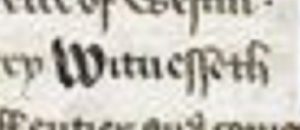 In this post I discuss how archaisms such as witnesseth arose more than five hundred years ago. Why do they persist? Because transactions are a precedent-driven part of a conservative profession: when it’s time to do a new transaction, it makes sense to reach for contracts used in other, previous transactions. There’s also an element of incantation involved: the law has long been cloaked in ritual.
In this post I discuss how archaisms such as witnesseth arose more than five hundred years ago. Why do they persist? Because transactions are a precedent-driven part of a conservative profession: when it’s time to do a new transaction, it makes sense to reach for contracts used in other, previous transactions. There’s also an element of incantation involved: the law has long been cloaked in ritual.
But we’re in a vastly more efficient age. We aim to get stuff done with a minimum of nonsense. That way, we save time, save money, are more competitive, and reduce our risk.
You’re a businessperson, or you’re an in-house lawyer. A lawyer (either someone at your company or outside counsel) gives you that draft contract you had asked for. They’re responsible for the wording—it’s not as if they had to work with the other side’s draft. The first thing in the draft that catches your eye is witnesseth.
By including witnesseth, here’s what that lawyer is saying:
Yes, I’ve included in this draft something that made sense five hundred years ago but long ago ceased making sense. It doesn’t affect deal terms in the slightest. Now it serves only to tell the world, “Here be bullshit legalese.”
Why did I include it? Force of habit, mostly. After all, I learned to draft by copying this dreadful stuff until it became second nature. Furthermore, like pretty much everyone else, I’m a victim of passive-drafting syndrome: all my contracts look like this, and changing it all would take way too much time.
At least that’s what I tell myself. Getting rid of witnesseth would in fact take no time at all. But that might waken my critical faculties. And who knows where that would lead.
You’re relying on me to know what I’m doing. The stakes are high. And I’m in effect telling you that I know what I’m doing, even though I’ve included that bit of fatuous crap in the contract, front-and-center. I’m asking you to ignore it, just as I ignored it while perpetuating it. But who are we kidding? I’m in fact a copy-and-paste monkey. Witnesseth is just the tip of the iceberg.
If your contracts matter and your lawyer serves up witnesseth, get your lawyer to change their ways. Or change your lawyer.

When I was in law school, I thought almost all legalese was archaic and vowed to do better. Opinions change, and as the I’ve practiced, I’ve learned the value of consistency. “Wittnesseth” tells long term clients that this is the kind of document they expect, with terms of which they are familiar. It signals to lay people that this is a legal document, and thus important for their attention. And term is completely harmless.
Sorry, but I think that’s dangerous nonsense. For more, go here: https://www.adamsdrafting.com/someone-offers-a-defense-of-brain-dead-contract-archaisms/.
So my question is? backdating is legal? So if i was stupid enough to sign without reading the contract and the write the date on the contact is fine?
In about 1988, as a junior lawyer in litigation, I drafted a deed of assignment of a patent, which senior counsel reviewed and revised. Counsel was the late Nicholas Pumfrey, then a specialist IP barrister, later a Court of Appeal judge before he died young. One of the revisions he made was to delete “it is agreed as follows” and replace it with “this deed witnesses as follows”. His point, I think, was that the instrument was transferring property rather than “agreeing” anything. In passing, he, commented that we could avoid the old-fashioned wording, often seen, of “witnesseth” and instead say “witnesses”.
Not advocating even “witnesses” but I thought this was relevant to this posting.
Changing “witnesseth” for “witnesses”: Nicholas was a real rebel!
Ken:
Thou doth mean that Nicholas did be a real rebel.
Chris
“Witnesseth” doesn’t even make literal sense the way it is most commonly used in contract documents. It can make literal sense if used as part of the preamble, with “this agreement” as its subject. For example: “This agreement between One Party and The Other Party [witnesses] [memorializes] [records] [pick your sensible modern interpretation of the term] that the parties have agreed as follows:” But most drafters just leave it dangling as a header to introduce the recitals, and even if they used it in a way that made more literal sense, that wouldn’t justify the archaism.
I don’t usually remove “witnesseth” from contracts drafted by others that come my way, but I haven’t let a document I drafted leave my desk with “witnesseth” in it for at least five years. I’ve never intentionally added it to a document, because, of course, when I was at the big firm, I found myself working with templates that already included it and couldn’t rock the boat. Copy and paste!